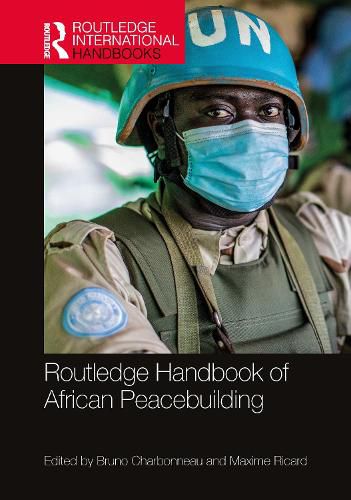Readings Newsletter
Become a Readings Member to make your shopping experience even easier.
Sign in or sign up for free!
You’re not far away from qualifying for FREE standard shipping within Australia
You’ve qualified for FREE standard shipping within Australia
The cart is loading…






Africa lies at the centre of the international community's peacebuilding interventions, and the continent's rich multitude of actors, ideas, relationships, practices, experiences, locations, and contexts in turn shapes the possibilities and practices of contemporary peacebuilding. This timely new handbook surveys and analyses peacebuilding as it operates in this specifically African context.
The book begins by outlining the evolution and the various ideologies, conceptualizations, institutions, and practices of African peacebuilding. It identifies critical differences in how African peacebuilders have conceptualized and operationalized peacebuilding. The book then considers how different actors sustain, construct, and use African infrastructure to identify and analyse converging, differing, or competing mandates, approaches, and interests. Finally, it analyses specific thematic issues such as gender, justice, development, democracy, and the politics of knowledge before ending with in-depth analyses of case studies drawn from across the continent.
Bringing together an international line-up of expert contributors, this book will be an essential read for students and scholars of African politics, post-conflict reconstruction, security, and peace and conflict studies.
$9.00 standard shipping within Australia
FREE standard shipping within Australia for orders over $100.00
Express & International shipping calculated at checkout
Africa lies at the centre of the international community's peacebuilding interventions, and the continent's rich multitude of actors, ideas, relationships, practices, experiences, locations, and contexts in turn shapes the possibilities and practices of contemporary peacebuilding. This timely new handbook surveys and analyses peacebuilding as it operates in this specifically African context.
The book begins by outlining the evolution and the various ideologies, conceptualizations, institutions, and practices of African peacebuilding. It identifies critical differences in how African peacebuilders have conceptualized and operationalized peacebuilding. The book then considers how different actors sustain, construct, and use African infrastructure to identify and analyse converging, differing, or competing mandates, approaches, and interests. Finally, it analyses specific thematic issues such as gender, justice, development, democracy, and the politics of knowledge before ending with in-depth analyses of case studies drawn from across the continent.
Bringing together an international line-up of expert contributors, this book will be an essential read for students and scholars of African politics, post-conflict reconstruction, security, and peace and conflict studies.